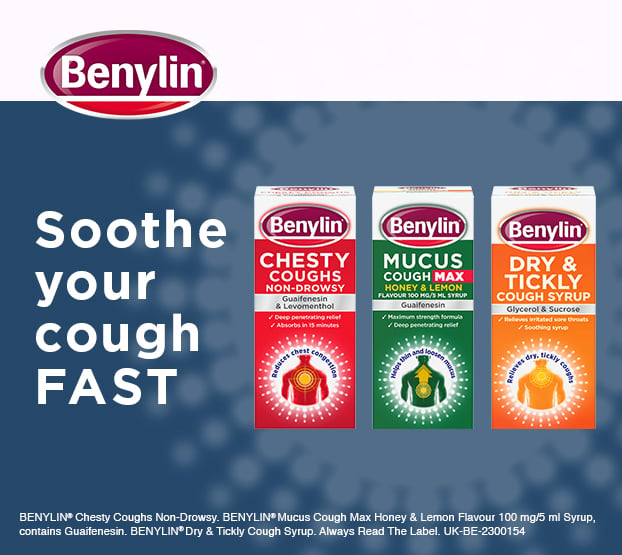Phlegmbarrassment: Avoid being judged for coughing in public spaces
Whether you’re on the train or bus, sometimes you can’t help but cough it out. However, one in three Brits (33%) dislikes it when others cough on public transport. That’s according to our nationally representative survey, carried out on 2,000 UK respondents in April 2023, about the public’s attitude towards cold and flu. Residents of London and Yorkshire are most affected, with displeasure rising to 38% in both regions.
But it’s not just coughing that’s the problem. The cold weather during winter and high volume of sick people can make day-to-day activities like commuting to work more challenging.
As such, we’ve created this guide to help you navigate the upcoming winter months and avoid the worst places to visit if you have a cough, or are keen to avoid catching one.
We’ll explore:
NOTE: If you have a cough, try and stay at home to get some rest and drink plenty of fluids. Avoid contact with other people if your cough is accompanied by a high temperature, or if you’re not well enough to resume regular activities.
The worst places to visit if you have a cough
With over two-fifths of Brits (42%) feeling uncomfortable when they cough and sneeze in public, it’s evident that there’s some social discomfort in leaving the house with a cold, cough, or flu.
Respondents from our survey also revealed the places they most disliked people sneezing or coughing in public. These are as follows:
The judgement behind coughing in public
By analysing the data from our survey, we’ve determined that people’s reaction to coughing in public is influenced by certain factors. These include:
The Worst Places to Cough and Sneeze
Location
Percentage
Public transport
33%
Restaurant
30%
Airplane
22%
Cinema
22%
Supermarket
20%
Theatre or opera
18%
Dentist or doctors
15%
Work
10%
Bar, pub or club
10%
Library
9%
Gym
6%
Beauty salon
5%
Other
1%
N/A- I do not care about other people coughing or sneezing in public places.
9%
The location
Public transport emerged as the most disliked place for someone to sneeze or cough in public, and for good reason too. Transport options such as trains and buses can be cramped with minimal air circulation, especially during peak travel times. Coughing can cause the transmission of respiratory infectious diseases, and you can propel an estimated 40,000 and 3,000 droplets respectively for every sneeze or cough you make.
Large droplets from an infected person will most likely contain influenza-like viruses, and can move approximately two metres (6ft) when the sick person sneezes or coughs. But if the sneeze or cough is intense, these droplets are estimated to travel as far as six metres (20ft).
Unsurprisingly, public transport also topped the list as the most embarrassing place (26%) to sneeze or cough in public. The same applies to restaurants, which ties in the topmost embarrassing places. While respondents didn’t reveal the exact reason why restaurants also topped the list, perhaps the proximity to a person with a cough is cause for concern, especially when food is served.
Interestingly, the place with the lowest public criticism to sneezing and coughing from our survey was a beauty salon. A strong indicator could be that sneezing and coughing may be seen as a regular reaction to some of the nail polishes, hair dyes and hairsprays found in the salon, and not from an influenza-like illness.
Attitude
There is a general uneasiness when it comes to people coughing and sneezing themselves in public. From the survey, 42% of respondents said they’d feel uncomfortable, 28% would be embarrassed, and 21% would be worried about people staring.
A quarter of respondents aged 18-24 (25%) also revealed they wouldn’t mind expressing their discomfort to another person coughing or sneezing in public. One-in-five (20%) of them would most likely verbalise their displeasure, 37% would move away from them, and 15% would ask them to move away.
However, respondents from London (33%) were least likely to feel uncomfortable about sneezing or coughing in public. This could be due to Londoners getting used to the high volume of people on trains and buses during peak travel times.
Etiquette
Etiquette also plays an important role when coughing and sneezing in public. Simply put, cough etiquette refers to the steps and measures taken by a person to contain cough and sneeze droplets at the source. From the survey, 84% of respondents believe that people should be educated on coughing and sneezing etiquette.
About a third of respondents (30%) believe that the people who cough and sneeze should be mindful enough to stay at home and not go out in public. If you do decide to leave the house, more than half of Brits (51%) prefer that you wear a mask in public if you’re sneezing or coughing.
Cough etiquette and flu advice
As we’ve seen from the survey, coughing etiquette is important, but what does it involve? When you have a cough, people generally feel uncomfortable about mucus and phlegm coming from an open mouth.
Coughing etiquette
Coughing etiquette starts with:
Covering your mouth and nose with a tissue when you’re blowing your nose, coughing, or sneezing.
If a tissue isn’t available, you can cough and sneeze into your sleeve or the inside of your elbow.
If you’ve coughed or sneezed into a tissue, make sure to dispose of it promptly in a waste or dust bin.
Once done coughing or sneezing, wash your hands with soap and warm water. If there’s no running water available, you can use hand wipes, but wash your hands the minute you get access to running water.
If you can’t access any of the above, keep your contaminated hands away from your mouth, nose and eyes.
It’s also important to stay hydrated when suffering from a flu, cold, or cough to help your immune system battle the illness and replenish lost fluids from your body. Hydrating is a key step in helping to relieve a cold or flu.
If you suddenly start coughing in public, then it’s wise to practice good coughing etiquette. At Benylin, we’re here to help you get the right treatment for your cold and flu, and feel confident with your cold symptoms when you’re out and about.
*Benylin products are available in all pharmacies and major retail stores across the UK. The products may have different labelling in different countries. If you’re unsure about your symptoms, consult your GP to get an accurate assessment of your condition. If your symptoms worsen, call the NHS emergency hotline on 999/111.

